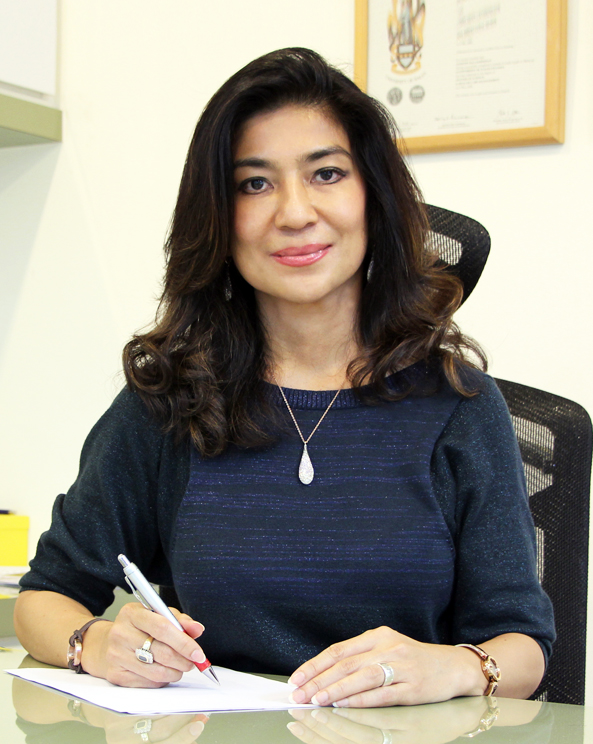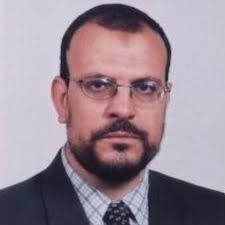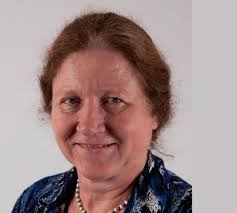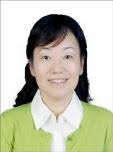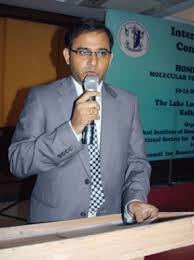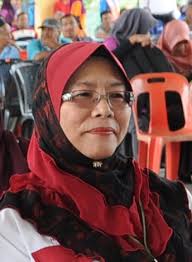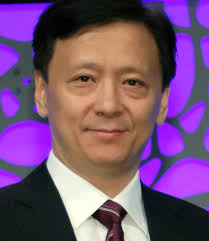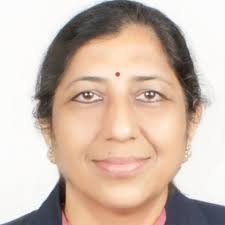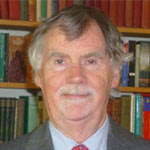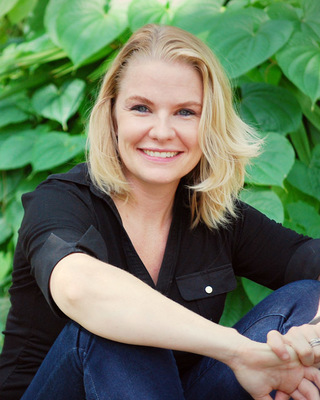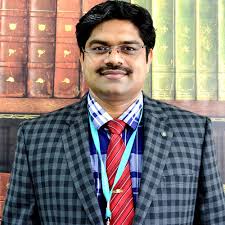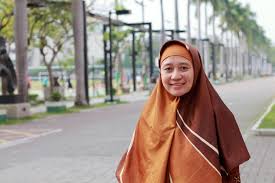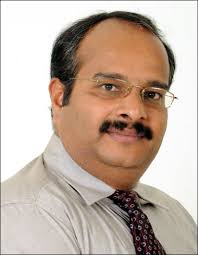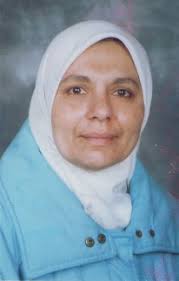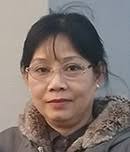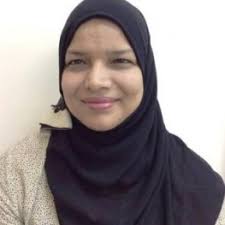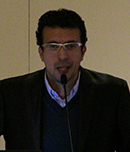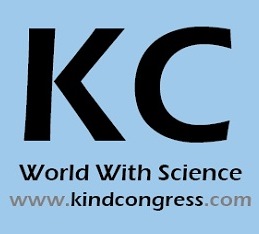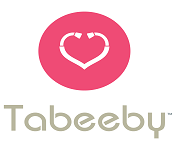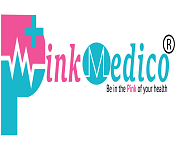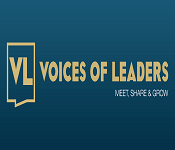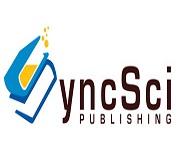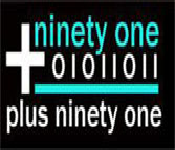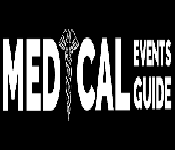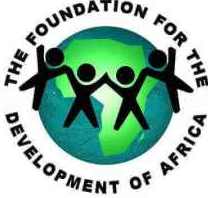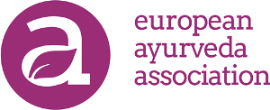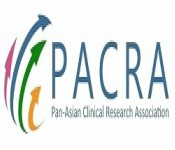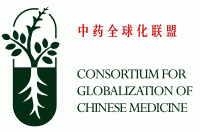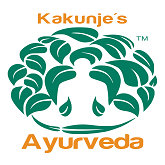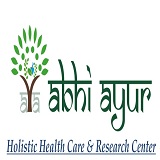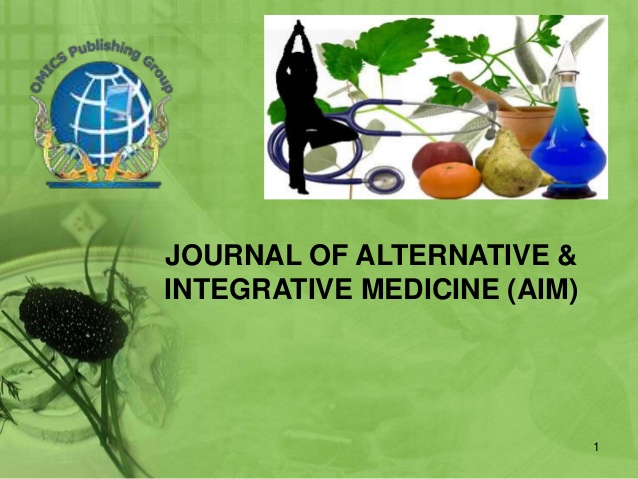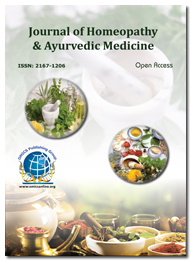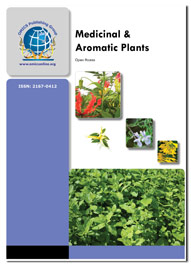Theme: Encouraging Traditional Medicine Approaches in Treatment & Rehabilitation
Medicinal Practices 2018
We stretch out a warm welcome to our 5th International Conference on Medicinal Practices: Herbal, Holistic and Traditional to be held from November 26-27, 2018, Bali, Indonesia
Medicinal Practices 2018 aims to gather leading educational scientists, researchers and research students to exchange & share their experiences and research results about all aspects of Medicinal Practices
We invite all the herbalists, holistic & traditional medicine practitioners, researchers in the field of Herbal and Holistic Traditional Medicine, Acupuncturists, Phytomedicine, Pharmacognosy, Ayurveda, Naturopathy, people who believe in natural remedies to explore their research, case studies and practitioners of natural medicine at Medicinal Practices 2018 in Bali, Indonesia.
The conference proceedings include symposiums and workshops, keynote speeches, plenary talks, poster sessions and panel discussion on latest research developments in the field of Alternative Medicine.
This universal meet suspects many representatives including worldwide keynote addresses and oral presentations by eminent speakers and notice presentations by understudies, Medicinal Practices Exhibitions and delegates all around the globe which will make a stage for worldwide advancement of sheltered and viable common treatments. It gives global systems administration and chances to joint efforts with overall organizations and businesses.
Medicinal Practices 2018 main slogan is to address the challenges in making a safer, sustainable and affordable system for medication, and health through consolidating the underpinning Medicine Practices research platforms. Medicine Practices 2018 conference prepares a ground for seeding new concepts and nurturing knowledge through discussions and analysis on Medicinal Practices developments.
This conference mainly focuses on the latest and exciting innovations in every area of Medicinal Practices research, and it will offer a unique opportunity for investigators from all over the world to meet, network, and perceive new scientific interactions. around the theme:"Encouraging Traditional Medicine Approaches in Treatment and Rehabilitation"
ME Conferences organizes 1000+ International scientific events annually across the world, where knowledge transfer takes place through round table meetings, panel discussions, poster presentations, International workshops, International symposiums & world class exhibitions. It hosts presentations from eminent experts in the relevant fields.
Why to attend ??
5th International Conference on Medicinal Practices: Herbal, Holistic and Traditional to be held from November 26-27, 2018, Bali. Indonesia is going to be the largest conference for Herbals & Traditional Medicine fraternity. It provides a technical forum for learning about the latest and advanced research and development. Events include hot topics like holistic and traditional medicinal practices & presentations from all over the world including professional networking with industries, leading working groups and panel.
Medicinal Practices 2018 anticipates many of delegates including international keynote lectures and oral presentations by renowned speakers and poster presentations by students, Herbal Exhibitions and delegates all around the world which will create a platform for global promotion of safe and effective natural remedies. It provides networking and opportunities for collaborations with worldwide companies and industries.
This global event will come out to be an excellent opportunity for the Herbalists and alternative practitioners to encourage the profound administration of herbs as medicament and explore the best reports where ultimate results to justify curing and healing by various herbals to various ailments has been noted with evidence and proving herbals to be the most viable option for treating chronic ailments.
Target Audience:
· Herbalists
· Alternative Medicine Practitioners
· Complementary Medicine Practitioners
· Researchers In The Field Of Herbal And Traditional Medicine
· Acupuncturists
· Phytomedicines
· Pharmacognosy
· Ayurveda
· Naturopathy
· People Who Believe In Natural Remedies To Explore Their Research
· Practitioners Of Natural Medicine
Track 1- Traditional and Alternative Medicine
Traditional and alternative medicine mainly covers all aspects of modern and standardized clinical research in the field of chemistry, proteomics, molecular mechanism, genomics, Pharmacology, safety, quality control, metabolomics, clinical studies of traditional chinese, unani, arabic and ayurvedic medicine. Each issue has updated comprehensive in-depth with high quality research and experimental articles. These medicines are leading and foremost internationally reviewed journal reflecting the current formidable scientific clinical practices which show progress of the global traditional, folk, and ethnologic medicine. It provides a link connecting the alternative and traditional medicine system to the modern life science with the efforts of top researchers, as well as a resource to pursuit solutions for the existing common problems occuring in the medicines.
Track 2- Ayurveda & Herbal Medicine
Ayurvedic medicine is a well known medicine having historical roots in the Indian subcontinent. Various global and modern practices have been acquired from Ayurveda traditions which are a type of complementary or alternative medicine. Ayurvedic therapies and practices have been assimilated in general wellness applications as well as in some cases of medical use. Basically therapies are based on complex herbal compounds, while the treatises introduced mineral and metal substances for the better results. Ayurveda treatises also taught world about different surgical techniques, including perineal lithotomy, the suturing of wounds, and the extraction of foreign objects.Phytomedicine or herbal medicine mainly uses plants different parts for medicinal purposes like seeds, roots, barks, flowers, or leaves. Herbalism has a great tradition of using different outside conventional medicine. In recent time, it is becoming more mainstream as many improvements are going in the field of analysis and quality control, along with different advances in clinical research, which enhances the value of herbal medicine in treating and preventing disease.
Track 3- Homeopathy Medicine
Homeopathy or homeopathic remedies is a technique or treatment which is considered to be safe, gentle, and natural system of healing that works with human body to relieve symptoms, restore itself, and improve overall health. It has been extremely safe to use, even working with very small children and pets, as there are none of the side effects of many traditional medications. Therefore, it is very affordable and is made from natural substances and FDA regulated.
Track 4- Holistic Medicine
Holistic medicine is defined as science of healing that addresses the whole human body, mind, and spirit. The practice of this medicine has been acknowledged to treat the disease by which it enhances optimal health. In an holistic approach to medicine, there is a belief that human well-being relies not only on what is going on in the body physically in terms of illness or disease, but also on the close relation of this with our psychological, emotional, social and environmental state. These different states can be equally foremost. They should be evenly managed together so that a person is treated as a whole.
Track 5- Chinese Traditional and Modern Medicine
The principle of traditional Chinese medicine has always been the most important therapeutic approach in the world. It has knowledge that can impact the modern medical development. There three structure of modern medicine one which is associated with modern medicine and the other one involuntarily associated beyond modern medicine and the final one which needs to be further evaluated. The part which consistent with modern medicine includes consent on several theories and concept of traditional Chinese medicine, and usage of several treatments and prescriptions of traditional Chinese medicine including commonly used Chinese herbs. The part which is involuntarily associated beyond the modern medicine includes several advanced theories and concepts of traditional Chinese medicine, relatively advanced treatments, formula and modern prescriptions, leading herbs, acupuncture treatment and acupuncture anaesthesia of traditional Chinese medicine that affect modern medicine and incorporates massage treatment that has been gradually acknowledged by modern therapy. And the final one which needs to be further evaluated includes not only the pulse diagnosis, herbs but also many other aspects of traditional medicines need to be evaluated.
Track 6- Japanese Traditional and Modern Medicine
Though Japan has reached highly advancement in the technology, everyday experience of Japanese are permeated with cultural tradition which give direction and meaning to their life. Derived from ancient China some 1,500 years ago, traditional Japanese medicine evolved throughout history into a uniquely distinct form. Insiders will note the uniqueness of Japanese practice lies in palpation, a touch technique essential to diagnosis and treatment. Another characteristic of Japanese acupuncture is the shallow insertion of very fine needles using a guide tube to reduce pain. Hari-kyu is as much unique as it is effective in treating a wide array of ailments. From musculoskeletal complaints such as lower back pain and shoulder stiffness being the most common — to headaches and fertility issues, the practice has gained a foothold in less often used areas such as sports medicine, mental health and in terminal illnesses such as cancer. The healing art of hari-kyu has worked for more than 1,500 years and continues to evolve. Understanding that the Japanese practitioners continue to change in medicine and social development, drawing on the value of hari-kyu in positive ways without letting go of traditional theories. The main concept of treatment remains the same only the way they follow and procedure of the treatment varies.
Track 7- Korean Traditonal And Modern Medicine
Korean medicine (KM) or Korean traditional medicine (KTM) experienced the harsh modernization of the 19th century, and has maintained its social status as clinical professionals and established unique educational systems based on the distinctive cultural, social, and political situations of Korea. They use various different herbal medicines in their day to day lives which keep them healthy and leading to them in the direction of the meaning of life. An example of herbal medicine is the use of medicinal mushrooms as a food and as a tea. A notable mushroom used in traditional Korean medicine is Phellinus linteus known as Song-gen. Acupuncture is the other method which Korean follows from the ancient period till date. Scientific investigation has not found any histological or physiological evidence for traditional Chinese concepts such as qi, meridians, and acupuncture points, and many modern practitioners no longer support the existence of life force energy (qi) flowing through meridians, which was a major part of early belief systems. Another traditional medicine they used to follow is moxibustion. Pressure points can be stimulated through a mixture of methods ranging from the insertion and withdrawal of very small needles to the use of heat. In the modern day practitioners used to stimulate pulses through laser, massage and other electrical means.
Track 8- Arabic and Unani Medicine
Unani medicine, also known as Unani tibb, is a traditional medicine known for healing and health maintenance. The origins of Unani medicine are mainly found in the doctrines of the ancient Greek physicians Hippocrates and Galen. Being a field, it was later developed and refined through systematic experiment by the Arabs who converted some traditional medicines as arab or unani medicines, most prominently by Muslim scholar-physician Avicenna either by using healing herbs or techniques. During the Caliphate, the bulk of Greek knowledge was translated into Arabic same with the idea of medicine acting as the principles of medicine. With additional contributions of medical wisdom from different or other parts of the Middle East and South Asia, Unani medicine came out to be known as Arabian, or Islamic, medicine.
Track 9- Acupuncture and Physiotherapy
Acupuncture is a famous technique involving the insertion of extremely thin or needles through skin at different strategic points on human body. Being an important component of traditional Chinese medicine, acupuncture has been the most commonly used method for the treatment of pain. Traditional Chinese medicine demonstrates acupuncture as a well known method for balancing the flow of energy or life force also known as qi or chi (CHEE) which is believed to flow through pathways in human body. By slotting needles into specific points along these meridians, acupuncture believes that by this experiment energy flow will re-balance. In contrast, many of the western practitioners see acupuncture points as places to stimulate nerves, muscles and connective tissues. Some also believe that this stimulation enhances body's natural painkillers and increases the rate of blood flow.
Track 10- Chiropractic and Osteopathic Medicine
Osteopathy and chiropractic are the useful and known therapies for the treatment purpose of musculoskeletal system. In these therapies practitioners mainly work with bones, muscles, and connective tissue, using their hands to diagnose and treat abnormalities of structure and function of musculoskeletal system. Chiropractors are more likely to push or work on vertebrae with their hands, whereas osteopaths tend use the limbs to make levered thrusts. Thus, the osteopathic and chiropractic techniques are converging, and so much of their therapeutic agent is shared. The most important potential and naturally occurring adverse effects of osteopathy and chiropractic are stroke and spinal cord injury after cervical manipulation. That’s why many of the Practitioners use a range of soft tissue techniques that do not involve high velocity thrusts.
Track 11- Herbal Cosmetics and Neutraceuticals
Herbal cosmetics are the preparations containing phytochemical from a variety of botanical sources, which influences the functions of skin and provide nutrients necessary for the healthy skin or hair. Nutraceuticals are food or part of food that provides medical or health benefits including the prevention and/or treatment of a disease. Nutraceutical has advantage over the medicine because they avoid side effect, have naturally dietary supplement, etc. Nutraceutical; on the basis of their natural source, chemical grouping, categories into three key terms -nutrients, herbals, dietary supplements, dietary fiber, etc. FDA regulated dietary supplements as foods to ensure that they were safe. In 2006, the Indian government passed Food Safety and Standard Act to regulate the nutraceutical industry. Herbal nutraceutical is used as a powerful instrument in maintaining health and to act against nutritionally induced acute and chronic diseases, thereby promoting optimal health, longevity, and quality of life.Naturopathy or naturopathic medicine is a type of alternative medicine that employs scientific practices such as natural, non-invasive, and as enhancing self-healing. The idea and methods of naturopathy are based on folk medicine, rather than relying on evidence-based medicine. Naturopathic practitioners generally recommend against the modern medical practices and are not just limited to medical testing, drugs, vaccinations, and surgery.
Track 12-Alternative Remedies for Chronic Diseases
Ayurveda treatment does not mean suppressing the main symptoms and creating some new ones as side effects of the main treatment. It is to remove the root cause and give permanent relief. In case of Alzheimer’s disease Ayurveda will help to prevent the further losing of memory and other symptoms. The treatment modalities include Pranayama: Breathing techniques to rejuvenate your brain cells. The main effects of Pranayama manifest in the nervous system and in the subtle psychic energy body .The breath is known as thread of life and depending on its action the entire life process is refined, balanced or else thrown out of proper order. The treatment modalities for heart disease includes combination of herbs like Arjun (terminalia arjuna), Bramhi (bacopa monnieri), Jatamansi (nordostachys jatamansi), Guduchi (tinospora cardifolia) will be useful in treating heart disease. Ayurveda in diabetes management include the herbs Jambhul (Eugenia jambolana)Powder from jamun core, Bitter Gourd/bitter melon (Momordica charantia), Bel (Aegle marmelos) will be useful herb in diabetic management. In the case of kidney disease Ayurveda treatment include Dry fruits : Pistachio, almonds and chilgoja are useful to tone up weak kidneys, Fresh fruits: Mango is beneficial to remove weakness of Kidneys. Fresh pine apple 60 g daily is useful for the cure of Kidney stone, Carrot (Daucus carota L.) fruit juice cures kidney troubles.
Track 13- Patents and Intellectual Property Rights (IPR) in Herbal Medicine
Herbal medicines just like all other products or medicines can also be protected from copying or being stolen by getting various forms of rights from the government. Since the different rights are granted by the state government for a property that has been invented for the betterment of human life from the use of mind or intellect, these are called as intellectual property rights. Four different types of intellectual property rights (IPRs) are possible namely patents, trademarks, designs and copy rights.
Track 14- Research Ethics in Alternative Healthcare
International agencies, corporations and governments are moreover investing in traditional herbal medicine clinical research. So, little literature addresses ethical challenges in this research. Concepts are applied in a comprehensive ethical framework for clinical research to international, traditional and herbal medicine research. Significant challenges exist in determining the equally shared concepts of social value, scientific validity and favorable risk as benefit ratio across international research collaborations. Method involved like cross-training investigators, and investing in safety-monitoring infrastructure, the issues identified by this comprehensive framework can promote ethically sound international herbal medicine research that contributes to global health.
Track 15- Marketing and Quality Control of Herbal Products
Phytotherapeutic specialists have organized arrangements comprising of complex blends of at least one plant which contains dynamic fixing plant parts or plant material in the unrefined or prepared state. A checked development in the overall phytotherapeutic advertises has happened in the most recent 15 years. For the European and USA alone, this will reach about $7 billion and $5 billion for every annum, separately, in 1999, and has developed a concern for most huge pharmaceutical organizations. Many of the times Inadequate information exists for most plants to ensure their quality, viability and wellbeing. The possibility that home grown medications are sheltered and free from symptoms is false. Plants contain many constituents & different parts and some of them are extremely harmful, for example, the most cytotoxic against tumor plant-determined medications, digitalis and the pyrrolizidine alkaloids. In any case, the unfriendly impacts of phytotherapeutic operators should be controlled by clinical researches. A few administrative models for home grown pharmaceuticals are presently accessible including physician recommended drugs, over-the-counter substances, conventional solutions and dietary supplements.So that the quality of medicine should be maintained.
Medicinal Practices Strategy 2014 to 2023: The WHO Medicinal Practices Strategy 2014–2023 was developed and launched in response to the WHO Assembly resolution on traditional medicine. The strategy aims to support Members States in developing proactive policies and implementing action plans that will strengthen the role Medicinal Practices plays in keeping populations healthy.
Addressing the challenges, responding to the needs identified by Member States & building on the work done under the World Health Organization Medicinal Practices strategy: 2002 to 2005, the updated strategy for the period 2014 to 2023 devotes more attention than its predecessor to prioritizing health services and systems, including traditional & complementary medicine products, practices and practitioners.
Global Use of Medicinal Practices:
Since most recent couple of years, utilization of Ayurveda, Siddha, Unani arrangement of solutions of are developing prevalence because of its all-encompassing methodology, decent variety and adaptability, less reactions, cost adequacy and simple associability. Around 80% of populace of the world utilize a few types of Traditional arrangement of drugs for their human services require. The utilization of conventional medicine in created and creating nations are recorded.
As per Global Industry Analysis, Global home grown supplements and solutions advertise is foresee to reach $107 billion by 2017 fortified by rising maturing occupants and expanding purchaser mindfulness towards general wellbeing and prosperity it is required to develop by an esteem CAGR of 3% at steady 2014 costs over the guess time frame. With less or no symptoms, home grown definitions are picking up notoriety among the purchasers, which will drive the development of home grown drug showcase all around. Also, home grown prescriptions are more compelling in specific ailments like icy, hack, hypersensitivity, clog, skin maladies and processing issues, which will enable the development of worldwide home grown drug to advertise in figure period.
Complementary and Alternative Medicine:
The utilization of correlative and option prescription (CAM) is expanding quickly. The World Health Organization (WHO) orders 65– 80% of the world's human services benefits as 'conventional drug' Therefore, from the perspective of the populace proportion, a bigger number of individuals utilize CAM than present day western medication. Albeit much consideration has been centered on CAM from doctors as well as fundamental restorative specialists, logical confirmation for most CAM is as yet inadequate. Development of CAM as another current of pharmaceutical relies upon regardless of whether exact logical confirmation can be gathered.
The CAM questionnaires were sent to 2118 clinical oncologists and found that the majority of oncologists (82%) believed that CAM products were ineffective against cancer. The main reason for this belief was a lack of reliable information (as cited by 85% of oncologists). Only 13% of oncologists had experienced CAM-associated disease improvement in their cancer patients
Why has CAM become so popular among ‘consumers’?
The following factors are responsible:
CAM is non-invasive, with few side effects
CAM helps improve quality of life (QOL) or activity of daily life (ADL)
CAM helps one to maintain one's own health
Western modern medicine does not fully correspond to the patients' demands the trend towards a more holistic medical approach ballooning medical expenses In this overview, I will describe and discuss the current status of CAM in Malaysia. The situation in Malaysia should be of much interest, since Malaysia is unique as a country in which highly advanced modern Western medicine coexists with traditional Asian medicine..
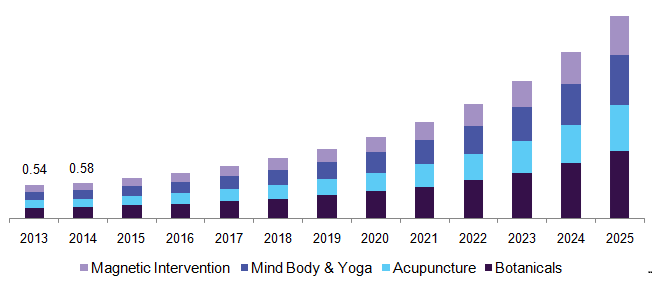
Why to attend ??
Who should attend:
· Herbalists
· Alternative Medicine Practitioners
· Complementary Medicine Practitioners
· Researchers In The Field Of Herbal And Traditional Medicine
· Acupuncturists
· Phytomedicines
· Pharmacognosy
· Ayurveda
· Naturopathy
· People Who Believe In Natural Remedies To Explore Their Research
· Practitioners Of Natural Medicine
Target audience:
Industry 21%
Academia 60%
Others 19%

Universities having medicinal practices worldwide:
-
University of Westminster, London
-
Cork Institute of Technology, Ireland
-
Bastyr University, USA
-
Shanghai University of Traditional Chinese Medicine,
-
ChinaGeorgetown University, Washington, D.C
-
Everglades University , Boca Raton, Florida
-
Metropolitan State University of Denver
-
Ashford University
Universities having medicinal practices in Middle East:
-
Mohammed bin Rashid University of Medicine and Health Science
-
Tianjin University of Traditional Chinese Medicine
-
Shandong University of Traditional Chinese Medicine
-
The European Academy of Ayurveda, Germany
-
Arab American UniversityAustralasian College of Natural Therapies (ACNT)
Universities having medicinal practices in Malaysia:
-
Curtin University
-
Monash University
-
International Medical University (IMU)
-
Management and Science University (MSU)
-
INTI International University and Colleges
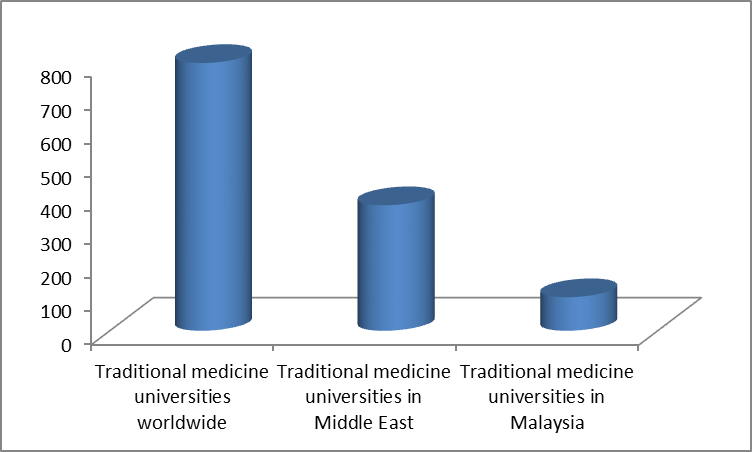
Research centres having medicinal practices worldwide:
· Tang centre of herbal medicine research, Chicago
· Beijing Medical Research Kundawell Institute
· National centre for complementary and integrative health
· Central Research Institute of Unani Medicine
· Yadam institute of research
Research centres having medicinal practices in Middle East:
· Arava institute research centres
· Shanghai International Cooperation Centre of Traditional Medicine
· Therapeutic research centre
Research centres having medicinal practices in Malaysia:
· Drug and herbal research centre
· Natural medicine research centre , Islamic university of Malaysia
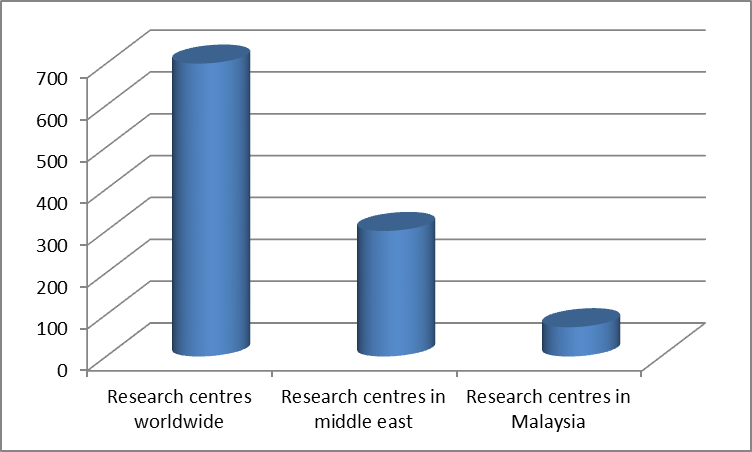
Associations having medicinal practices Worldwide:
· World Medical Association
· International Association of Medical Regulatory Authorities
· Association for Medical Education in Europe (AMEE)
· British Herbal Medicine Association
· World Organization of Natural Medicine & Clinics for Humanity
· International Practitioners of Holistic Medicine
· Ayush Medical Association of India
Associations having medicinal practices in Middle East:
· Association of Traditional Chinese Medicine and Acupuncture, UK
· European Herbal & Traditional Medicine Practitioners Association
· British Holistic Medical Association
· European Ayurveda Association (EUAA)
Associations having medicinal practices in Malaysia:
· Association Of Integrative Medicine Malaysia
· Pharmaceutical Association of Malaysia
· Islamic medical association of Malaysia
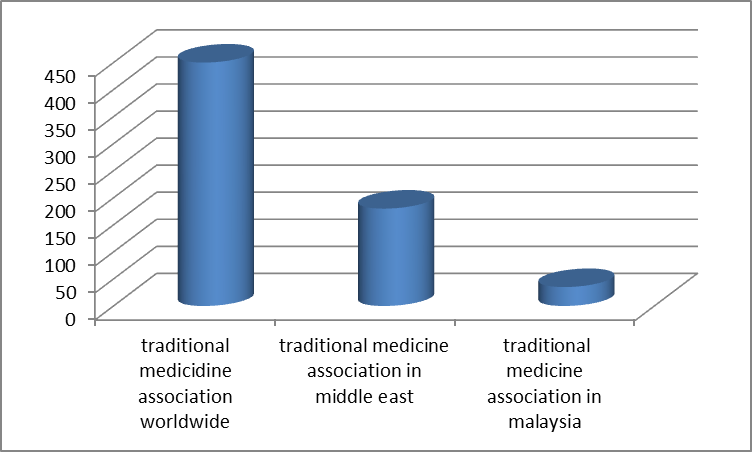
Societies having medicinal practices Worldwide:
· Traditional medicine society , MIT
· American ayurvedic society
· World federation of Chinese medicine societies
· World Federation of Acupuncture Societies (WFAS)
· Graeco-Arabic Medicine Society Inc.
· Iranian Medical Society
S Societies having medicinal practices in Middle East:
· Saudi Pharmaceutical Society
· American Society of Acupuncturists
· Emirates Society of Emergency Medicine (ESEM)
· Australian Traditional Medicine Society
Societies having medicinal practices in Malaysia:
· Malaysian Society for Complementary Medicine
· Malaysian Pharmaceutical Society
· Homeopathy Associations and Societies
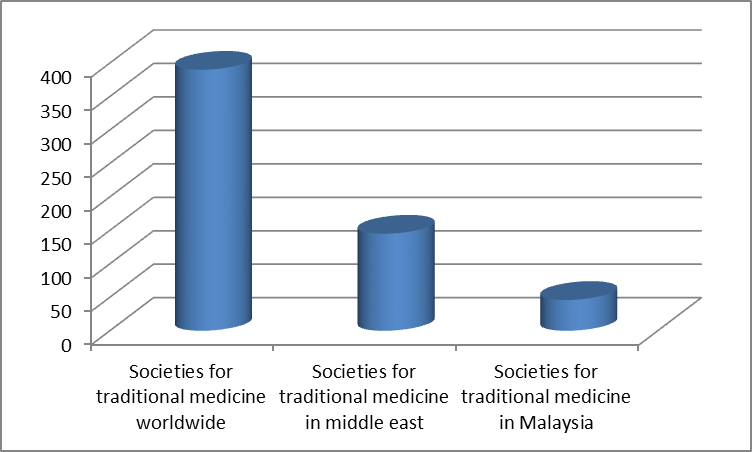
Industries involved in manufacturing traditional medicines worldwide:
· The Himalaya Drug Company
· Viswakeerthy Ayurvedic Pharmacy
· GlaxoSmithKline
· Schering-Plough
· Bayer
· Bakson Drugs & Pharmaceuticals Pvt. Ltd.
· Dr. Willmar Schwabe. Germany
· Similia Homoeo Laboratory
Industries involved in manufacturing traditional medicines in Middle East:
· BAL PHARMA LIMITED
· Julphar Gulf Pharmaceutical Industries Manufacturers
· Kuwait Saudi Pharmaceutical Industries Co.
· Antah Healthcare Group
Industries involved in manufacturing traditional medicines in Malaysia:
· Bio-Pharmaceuticals Sdn Bhd
· Pharma Niaga Berhad
· Y.S.P. Industries (M) Sdn Bhd
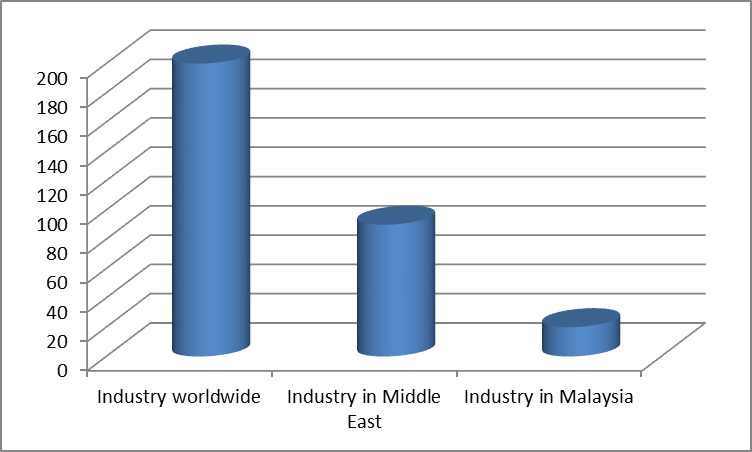
Statistics of universities, Research centres, Associations, Societies, Industries associated with Medicinal Practices:
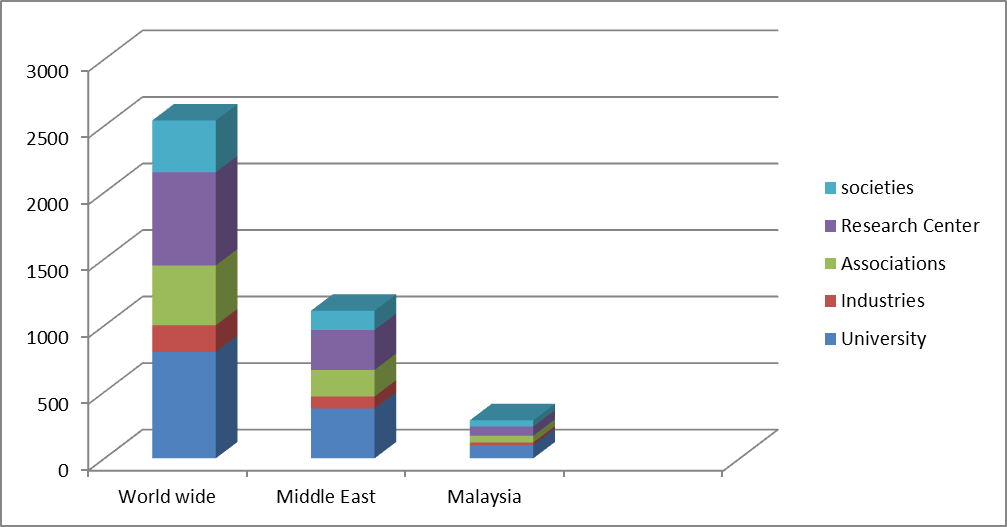
Related Societies-
Asia-Pacific & Middle East
Australian Traditional Medicine Association ATMA; British Holistic Medical Association European Ayurveda Association (EUAA); British Herbal Medicine Association; Ayush Medical Association of India; Saudi Pharmaceutical Society; Emirates Society of Emergency Medicine (ESEM); Malaysian Society for Complementary Medicine; Homeopathy Associations and Societies; Malaysian Pharmaceutical Society; Asia Herb Association; Australian Homoeopathic Association; Australian Naturopathic Federation; International Society for Japanese Kampo Medicine (ISJKM); Pancyprian Association of Acupuncturists Limited; China Association of Traditional Chinese Medicine .
USA-
World Medical Association; American Holistic Medical Association; International Association of Medical Regulatory Authorities; Traditional medicine society; World federation of Chinese medicine societies; Acupuncture Society of America; Texas Association of Acupuncture & Oriental Medicine; American Herbal Products Association; American Naturopathic Medical Association; North American Society of Homeopaths; Swedish homeopathy association; Herb Society of America; Herbalist Association of Nova Scotia; National Qigoing Association; North Carolina Association of Acupuncture and Oriental Medicine
Europe-
The Association of Traditional Chinese Medicine and Acupuncture UK; British Acupuncture Council (BAC); European Traditional Chinese Medicine Association; European Herbal & Traditional Medicine Practitioners Association; Association for Medical Education in Europe (AMEE); The Association Of Chinese Medicine & Acupuncture; The British Dental Acupuncture Society; Acupuncture and Chinese Medicine Organization; Association of Master Herbalists; Greek Association of Chinese Medicine
Related conferences-
-
World Congress Traditional and Complementary Medicine, September 24-25, 2018 Abu Dhabi, UAE
-
4th Global Summit Herbals and Traditional Medicine, June 06-08, 2018 Osaka, Japan
-
2nd Annual Meeting Naturopathic Physicians & Acupuncturists, August 22-23, 2018 Tokyo, Japan
-
5th World Congress Natural Products, Medicinal Plants and Traditional Medicines, May 18-19, 2018 Tokyo, Japan
-
24th International Conference Herbal and Alternative Therapies for Diabetes, August 17-18, 2018 Singapore
-
3rd World Congress Traditional and Complementary Medicine, May 30-31, 2018 Auckland, New Zealand
-
International Conference Internal Medicine, May 21-22, 2018 Osaka, Japan
-
6th International Conference Pharmacognosy, Phytochemistry & Natural Products, September 12-13, 2018 Shanghai, China
-
9th International Conference Chinese Medicine, Ayurveda & Acupuncture March 12-13, 2018 Barcelona, Spain
-
6th International Conference Acupuncture and Oriental Medicine, April 18-19, 2018 Las Vegas, Nevada, USA
-
8th International Conference Traditional & Alternative Medicine, November 1-3, 2018 Valencia, Spain
-
9th Edition International Conference Alternative Medicine, February 26-28, 2018, London, UK
-
24th International Conference Herbal and Alternative Therapies for Diabetes, August 17-18, 2018 Singapore
Conference Highlights
- Traditional and Alternative Medicine
- Ayurveda & Herbal Medicine
- Acupuncture & Physiotherapy
- Holistic Medicine
- Homeopathy Medicine
- Japanese Traditional & Modern Medicine
- Arabic And Unani Medicine
- Alternative Remedies for Chronic Diseases
- Chiropractic and Osteopathic Medicine
- Herbal Cosmetics and Neutraceuticals
- Chinese Traditional & Modern Medicine
- Patents and Intellectual Property Rights (IPR) in Herbal Medicine
- Research Ethics in Alternative Healthcare
- Korean Traditional & Modern Medicine
- Marketing and Quality Control of Herbal Products
To share your views and research, please click here to register for the Conference.
To Collaborate Scientific Professionals around the World
| Conference Date | November 26-27, 2018 | ||
| Sponsors & Exhibitors |
|
||
| Speaker Opportunity Closed | Day 1 | Day 2 | |
| Poster Opportunity Closed | Click Here to View | ||
Useful Links
Special Issues
All accepted abstracts will be published in respective Our International Journals.
- Journal of Traditional Medicine & Clinical Naturopathy
- Alternative & Integrative Medicine
- Medicinal & Aromatic Plants
Abstracts will be provided with Digital Object Identifier by





